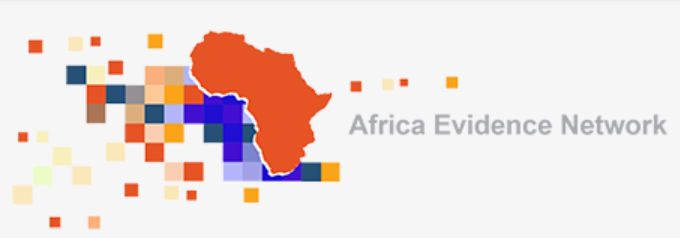
Dr Ekwaro Obuku speaking at an intra-African learning exchange on evidence synthesis hosted by the Africa Centre for Evidence
Limited Capacity for Evidence Synthesis and Use in Africa
Since the 1990 report of the Council of Health Research and Development, the “10/90 gap” has persisted. In addition, research has shown that, the use of evidence in low and middle-income countries is still low, hampered by lack of capacity for primary research as well as the inability to synthesize existing evidence. As such issues that affect high-income countries, and contain matters of less relevance to sub-Saharan Africa predominantly populate systematic reviews.
The Africa Centre for Systematic Reviews and Knowledge Translation at Makerere University, Uganda
Founded in March 2013 at Makerere University College of Health Sciences with seed funding support from the International Development Research Centre (IDRC), Canada the “African Centre” aims to build capacity for knowledge translation for health policy in Uganda and East Africa. Our vision is to become a leading Centre of excellence in evidence synthesis and knowledge translation for health policy in sub-Saharan Africa. Our mission is to transform Uganda and the East African region into an environment that is driven by evidence informed health policy and action and one that is self-reliant in capacity for evidence synthesis and knowledge translation.
The “Africa Centre” is a virtual Centre with groups of over 20 Scientists from various countries coming together to bridge the know-do gap between research evidence, policy and implementation in the health sector. The Africa Centre builds on the success of previous initiatives of the Regional East African Policy Initiative (REACH-PI) for which Nelson K. Sewankambo was Principal Investigator.
We have trained over 100 researchers in systematic reviews and meta-analysis, from 8 African countries (Botswana, Cameroun, Ghana, Ethiopia, Kenya, Rwanda, South-Sudan, Tanzania and Uganda). Further, we have completed over 30 evidence syntheses covering Millennium Development Goals 4 (child health), 5 (maternal health) and 6 (infectious Diseases) as well the three key pillars of health system strengthening (governance in the health sector, health financing and human resources for health).
South-South Collaboration To Strengthen Evidence Use in Africa
We are part of the Africa Evidence Network (AEN), the Global Evidence Synthesis Initiative (GESI) and the World Health Organisation Evidence Informed Policy Network (WHO-EVIPNet). We have collaborated with Scientists from the University of Johannesburg (Africa Centre for Evidence), the South African Cochrane Centre (SACC), Kenya Medical Research Institute (KEMRI) as well as local Ugandan institutions (Uganda Medical Association and the Ministry of Health) to advance the Research To Policy (R2P) agenda. More recently, we are working in partnership with the American University of Beirut (AUB) to scale up Rapid Response Mechanisms in East Central and Southern Africa (ECSA) and the Middle East and North African (MENA) regions, now codenamed UsEvidence. Indeed we have had successful North-South engagements with John Lavis at McMaster Health Forum, Canada; whilst Andrew Oxman of the Cochrane group Effective Practice and Organization of Care (EPOC) supported our inaugural training in 2013. In May 2017 we held a joint training with Howard White the Campbell Collaboration (CC) for the Office of The Prime Minister, Government of Uganda.
Evidence Synthesis in South Africa: Key Lessons
“If you want to move fast, move alone. If you want to move far, move together”. This African proverb characterized my visit at the Africa Centre for Evidence (ACE), University of Johannesburg, in the winter of 2017. I participated in a public lecture on Evidence Synthesis in Africa. This audience was quite receptive and engaged, each having a stake in moving forward the EIDM agenda in Africa. Remarkably, physical presence of the DPME of the South African government was reassuring that we are on track together with decision takers and policy makers. Indeed South Africa remains our powerhouse and providing this leadership in the African continent has never been timelier. It is no wonder in September 2017; all roads lead to Cape Town for the Global Evidence Summit. A key take home message from this session was “…At all times, we mustn’t forget the dangers of driving findings from a single study and this message should permeate through the web of the Africa Evidence Network…”
The collaborative learning at the ACE, during the critical appraisal of included studies into the systematic review on the effects of interventions supporting women’s participation in the labour market in LMICs. It was a convergence of paradigms from different teams of scientists in the social sciences, medicine, economics and environment/ecosystems. This 360 degree collaborative interdisciplinary critical thinking, learning and exchange is more likely to propel Africa to achieve the Sustainable Development Goals by 2030. In as much as I have been involved with systematic reviewing for nearly half a decade, face-to-face interaction remains crucial in optimizing synergies in review teams. I am grateful to the funding support by the ACE/DFID to further up-skill my competence is evidence synthesis.
Last but not least, “siyabonga” for the typical South African rainbow hospitality. The people at this Research Village were warm, in such a cold winter: Ruth, Christa, Mary, Zafeer, Natalie, Yvonne, Charity, Promise, Desyree, Precious and obviously my main man Laurenz. Obviously, I had such a wonderful stay at Twickenham guesthouse. The food, music and scenery of Johannesburg are cherished memories.